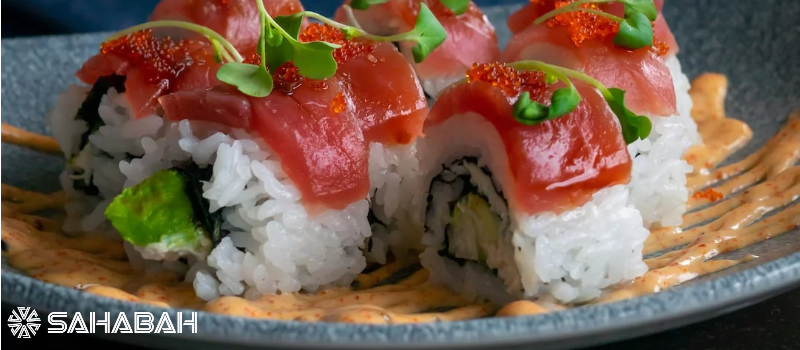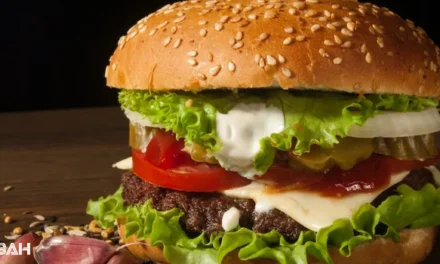Octopus is a popular seafood that can be found in dishes around the world, from Japanese sushi to Mediterranean salads. However, many Muslims who follow a halal diet may wonder, is octopus halal or haram to eat according to Islamic law? This detailed guide examines the different opinions on octopus and halal seafood among Islamic schools of thought.
Eating halal is an important part of life for observant Muslims. Following a halal diet involves abstaining from pork, alcohol and any meat that is not slaughtered according to Islamic guidelines. However, when it comes to seafood, there are different interpretations on what is considered halal. Sea creatures like fish, prawns, crab and octopus are common ingredients in cuisines around the world, so Muslims want to know whether they can enjoy these foods while adhering to a halal diet.
Is Octopus Meat Halal or Haram in Islam?
The main consensus among Islamic scholars is that seafood and creatures found in the ocean are generally halal to eat for Muslims. This would make eating octopus permissible. However, there are some additional considerations and debate around octopus and halal which we will explore in detail below.
What Does the Quran Say About Eating Seafood?
The Quran does not specifically mention octopus, but it does have passages about eating seafood. Verse 5:96 states “Lawful to you is game from the sea and its food as provision for you and the travelers.” This would imply that octopus and other seafood is generally halal. However, some argue that since octopus is not among the category of “fish” with scales, it may not be included in the permission granted in this verse.
Different Opinions on Octopus in the Major Schools of Islamic Law
Within the four major Sunni schools of Islamic jurisprudence, there are differing interpretations on octopus and whether it falls under the category of permissible seafood.
The Hanafi School
The Hanafi school, the largest of the four major Sunni schools, considers octopus to be halal. Hanafi scholars argue that the Quran gives general permission to eat seafood without making exceptions for whether the animal has scales or not. Additionally, they point out that octopus is not poisonous or hazardous to health.
The Maliki School
The Maliki school also views octopus as halal, based on the general permission given in the Quran for seafood consumption.
The Shafi’i School
Unlike the Hanafi and Maliki rulings, the Shafi’i school considers octopus to be haram. They base this on the hadith that only fish with scales are halal. Since octopus does not have scales, they do not allow octopus consumption.
The Hanbali School
Scholars of the Hanbali school have a mixed opinion about octopus. Some Hanbali scholars have ruled octopus halal based on the broad Quranic permission for seafood. Others prohibit it because it lacks scales and is not specifically named as permissible in the Sunnah.
Is Octopus Halal According to Shia Islam?
Within Shia Islam, octopus is generally considered halal and permissible to eat. Shia scholars base this on the Quranic principle that all types of seafood from the ocean are allowed for consumption. They do not consider the lack of scales in octopus to be a restricting factor.
Conclusion – Is Octopus Halal or Haram to Eat for Muslims?
-
The Hanafi and Maliki schools of Sunni Islam deem octopus to be halal seafood based on general Quranic permission for all seafood.
-
The Shafi school considers octopus haram because it does not meet the criteria of having scales.
-
Hanbali scholars are divided, with permissions and prohibitions of octopus consumption both occurring.
-
Shia Islam permits octopus as halal seafood.
-
There are some conditions that can impact the halal status even for permissive schools, such as cross-contamination with haram ingredients.
-
The majority consensus is that octopus is halal, but Muslims who want to avoid it can follow a different ruling according to their madhhab or scholarly interpretation.
Frequently Asked Questions – Is Octopus halal
There are some additional questions that Muslims may have on the topic. Let’s explore these key considerations in more detail:
Is octopus considered haram according to the Hanafi school of thought?
No, the Hanafi school considers octopus to be halal seafood that Muslims can eat. They base this on the general permission given in the Quran to consume all sea creatures.
Can Muslims eat octopus according to scholars of Islam?
There are differences of opinion among Islamic scholars on whether octopus is halal or haram. Many major scholars and schools like Hanafi and Maliki consider octopus to be halal and permissible for Muslims to eat.
If octopus is not slaughtered according to halal certification, is it still halal?
According to most schools of thought, octopus does not require ritual slaughter to be made halal. It is considered intrinsically halal as seafood that Allah has permitted Muslims to catch from the sea and eat.
What do different schools of Islamic law say about octopus – halal or haram?
There are varying perspectives on octopus among the schools of thought. Hanafi and Maliki consider it halal like other seafood. Shafi’i prohibits it for lacking scales. Hanbali scholars differ in their rulings on octopus.
Can Muslims eat octopus sushi if we don’t know whether the octopus is halal?
Eating octopus sushi is considered doubtful (mashbooh) if the source is unknown. It’s best for Muslims to only eat certified halal sushi to prevent potential consumption of haram ingredients.
Why do some schools not allow octopus due to lack of scales?
Scales are mentioned specifically as a trait of permissible seafood in some hadiths. Since octopus lacks this characteristic, some scholars strictly apply the criteria that only fish with scales are halal.
Doesn’t octopus qualify as halal seafood under the general permission of the Quran?
Many scholars argue yes – that octopus falls under the broader Quranic allowance for all sea creatures as halal food. They do not consider the lack of scales prohibitive or see the hadith mentioning scales as the only requirement.
Are other seafoods without scales also haram according to some schools?
Yes, seafood like prawns, crab, lobster, oysters and shrimp are also sometimes prohibited along with octopus by scholars who require the animal to have scales to be halal.
What if octopus is cooked with alcohol or other haram ingredients?
Even permissive schools state that if octopus is contaminated with haram substances, it takes on their ruling. Cross-contamination can make halal octopus haram.
Can I eat octopus sushi if I don’t know how it was prepared?
Sushi containing octopus would be considered questionable (mashbooh) by many scholars. It is best to only eat certified halal sushi to avoid potential haram ingredients.
Do I have to follow my specific madhhab’s ruling on octopus?
No – different opinions occur on octopus even within the schools. You can follow a permissive scholarly view in your madhhab if you want to consider octopus halal.
If I avoid octopus, what other halal seafood can I eat?
Fish, shrimp, crab, lobster, squid, mussels and other types of shellfish are halal seafood options according to the majority opinion across schools of Islamic law.
A Final Look at Octopus in the Halal Diet
At the end of the day, there is flexibility within Islamic law on whether octopus is halal or haram. Muslims are encouraged to make their own judgement by researching scholarly views and Quranic principles. While octopus is avoided by some, the majority opinion permits octopus as part of a halal seafood diet for Muslims.
The key points to remember are:
-
There are multiple perspectives from different madhhabs and scholars on octopus as halal food
-
Eating halal requires avoiding alcohol, pork and non-zabiha meat according to all schools
-
Beyond octopus, fish, shrimp, crab and other ocean creatures are agreed upon as halal by most scholars
-
Muslims can make a personal choice on octopus based on their madhhab, scholarly interpretations and own reading of Quranic principles
-
It is praiseworthy to avoid doubtful foods, but differences of opinion exist on whether octopus is truly doubtful
By understanding the evidence and principles behind Islamic dietary laws, Muslims can make informed choices to follow a halal diet while enjoying the delicious bounty of the seas Allah has provided.





